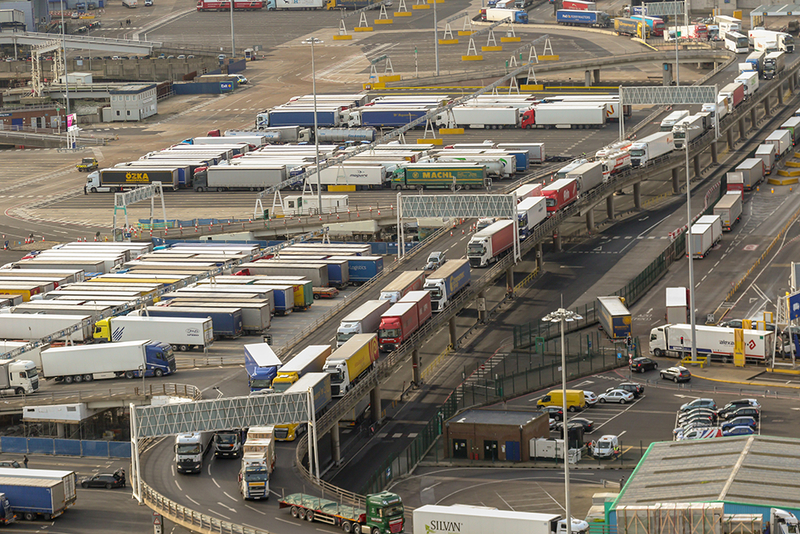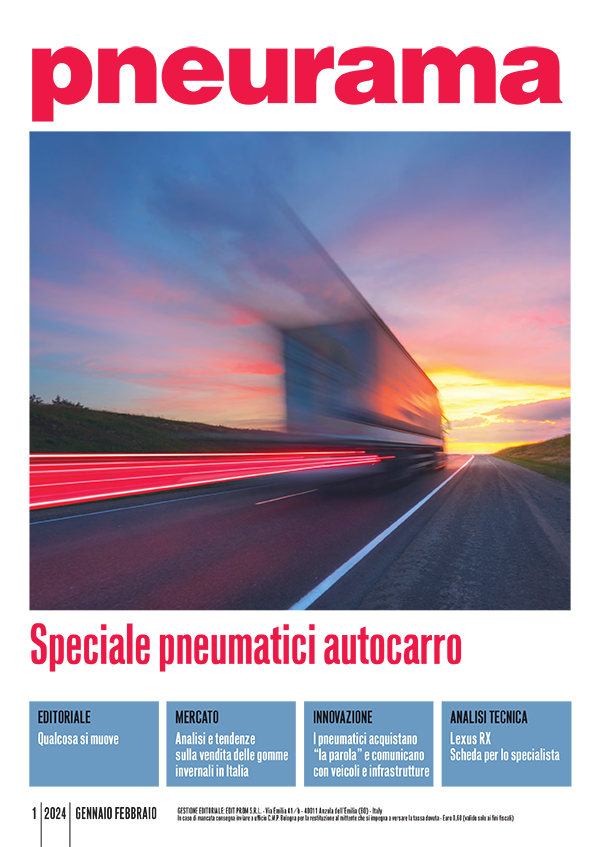Shortage of truck drivers: a worldwide problem
Europe alone is short of 400,000 drivers. Issues with safety and salaries behind the decline

The beginning of the year came with many significant news, some very practical, for the management of freight transport in Italy and Europe. Starting from the continent and its renewed borders, we cannot avoid talking about the Brexit. Since January 1, in fact, new rules regulating the movement of cargo to and from the UK have come into force. As far as road transport is concerned, there is an obligation to have a specific permit to cross the Channel starting from Kent, the region where the port of Dover is located.
This is called the Kent Access Permit and must be on board all vehicles with a total mass greater than 7.5 tons going from Kent to the continent via the port of Dover or the Eurotunnel. It is valid for 24 hours and assures the British Authorities that the vehicle has complete and correct documentation to enter the European Union, avoiding the risk of being blocked before embarking, which would create huge traffic problems in Kent. The Kent Access Permit can be obtained online.
The overall agreement between the EU and the UK says that UK commercial vehicles will be able to carry out international point-to-point transport within the EU without any quota, and vice versa. This saves hauliers on both sides from having to apply for Cemt permits. Once across the border, British or EU trucks will be able to carry out up to two transport operations in the other party's territory. In practical terms, this means that EU trucks, once offloaded the inbound cargo, will be able to carry out up to two cabotage operations before returning to the continent.
British hauliers entering the Community will be able, after offloading their original cargo, to carry out two transport operations between as many Member States, or one cross-border and one cabotage trip. Special provisions have been made for Ireland, as hauliers from Northern Ireland will be able to carry out two cabotage trips in Ireland.
The agreement also provides for common standards on drivers' working conditions, their level of qualification, technical requirements for vehicles and minimum conditions for operators to obtain a license. In addition, the provisions on fair and social competition that apply to the entire agreement will also apply to the trucking industry. One chapter of the agreement is dedicated to the transit of industrial vehicles, which remains free when reaching other countries. For example, EU hauliers will be able to pass through Great Britain to reach Ireland, and conversely, UK hauliers will be able to pass through any EU country to reach other parts of the UK (for example, Northern Ireland) or third countries. In addition, hauliers based in Ireland and Northern Ireland will be able to carry out two cabotage operations on each other's territory.
From Europe comes a small yet significant revolution: from January 1, the rules establishing the European Register of Transport Companies (Erru) came into force throughout the European Union. Basically, this means that all transport violations are noted in the register and will remain there for two years. Each entry will be given a score according to the seriousness of the infringement. In the end, in case of repeated negligence or in case of exceeding a certain threshold, which differs according to the size of the company, the company could incur either a suspension or the loss of its good standing and, consequently, the transport license itself.
The list of offenses that carry penalty points is listed in EU Regulation 2016/403, and includes violations of the rules on driving and resting times, tachographs, working time, weight and dimensions, roadworthiness, speed limits, driver competence, driving licenses, transport of dangerous goods by road, market access, and animal transport. The points system was actually supposed to come into force as early as 2013, but because many member countries were not ready at that point – as they were still lacking a national electronic register - its implementation at European level has been delayed until now. Not without legal aftermath.
For example, last May, the Commission took Cyprus, the Netherlands and Portugal to the Court of Justice of the European Union following their failure to update their register of road transport companies or created the link between their register and the European Register by January 30, 2019.
To conclude, another important piece of news concerns the transport of goods: an updated ADR Regulation also came into force at the beginning of 2021, the application of which is mandatory in the first six months of the year for international road transport, while for national haulage this can wait until July 1. The Regulations are updated in line with the greater electrification of transport following the increase of lithium batteries being moved, making provisions for their identification, with some exemptions, and of devices for the production and storage of electrical energy. Other important changes concern the classification of goods belonging to Class 1, Class 6.2 and Class 7.
The Adr 2021 also introduces new UN numbers in Table A and special provisions for some UN numbers. Furthermore, the update revises part of the instructions and changes the identification mark for lithium batteries. As far as transport activities, the list of persons responsible for submitting accident reports now includes offloading personnel, while also the consignor has to appoint an Adr consultant. Finally, the transport document must indicate the materials that do not have restrictions for tunnel transit while additional information has been included for refrigerated gases.
Europe alone is short of 400,000 drivers. Issues with safety and salaries behind the decline
New governance in Italy and Europe, but the road ahead remains difficult
From a new collective contract to fair compensation for transporters, to environmental challenges
